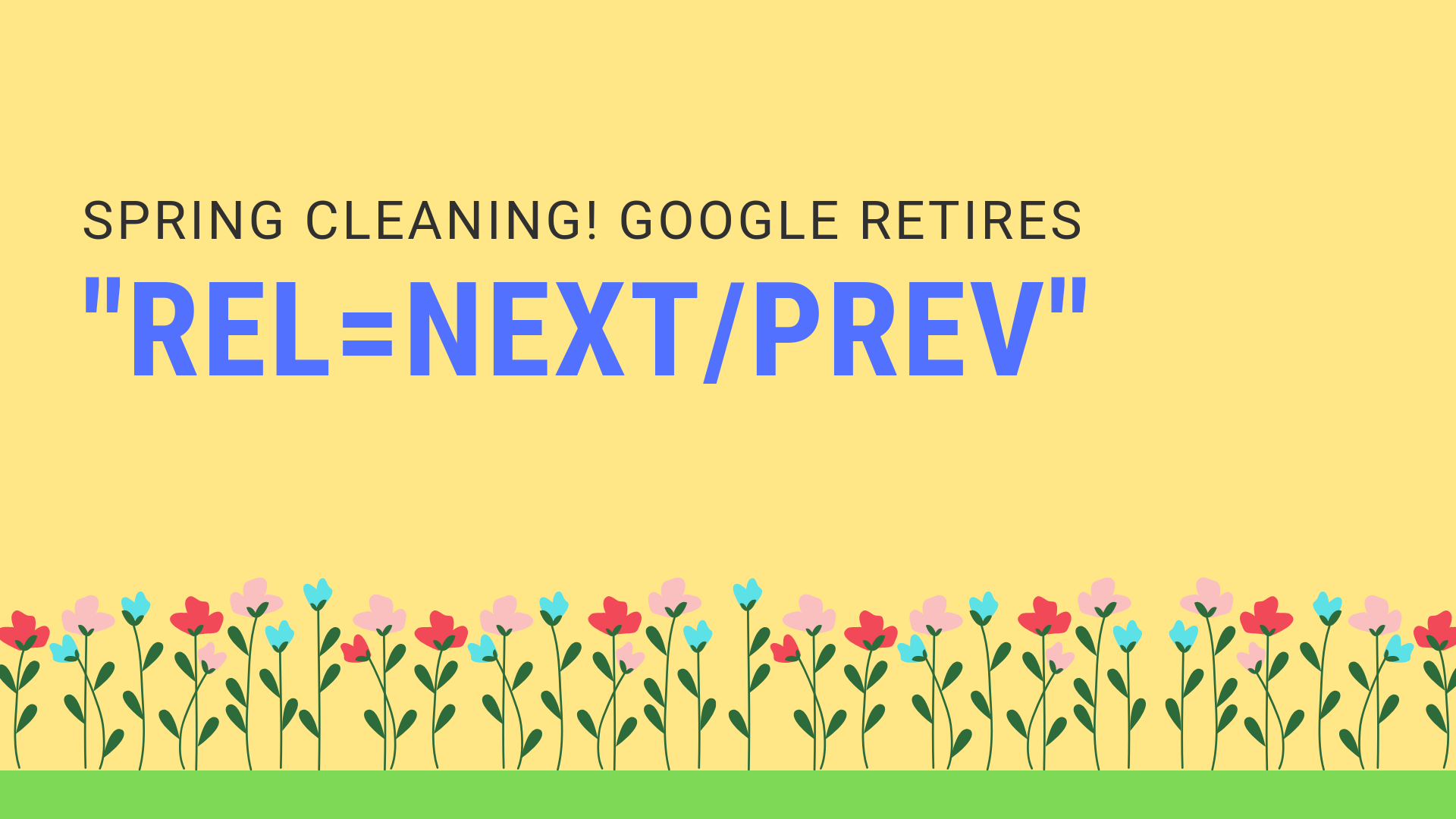Courtney-Dale Nel
Courtney is a Content Writer on the Pure SEO team. They have a Bachelor in Behavioural Psychology, way too much experience working with pigeons, and a fondness for nachos that rivals most marriages.

It has recently come to light in the SEO community that Google has rid themselves of the documentation around the “rel=next/prev” tag. In fact, according to Senior Webmaster Trends Analyst John Mueller, the change occurred “some years ago”, but a public announcement was never made – until now. As one would expect, webmasters all over the world are in a ruckus.
It’s no surprise. This change impacts search engine optimisation efforts, especially for larger websites.
Here, we break down what this tag eradication means and the best practice for sites moving forward.
Spring cleaning!
— Google Webmasters (@googlewmc) March 21, 2019
As we evaluated our indexing signals, we decided to retire rel=prev/next.
Studies show that users love single-page content, aim for that when possible, but multi-part is also fine for Google Search. Know and do what’s best for *your* users! #springiscoming pic.twitter.com/hCODPoKgKp
-Google’s recent announcement on “spring cleaning” the rel=next/prev tag
The primary goal for anyone when they’re conducting SEO is for the pages of their website to be on the Google search engine results page (SERP), usually as high up in the results as they can manage. In order for this to happen, your page must first be indexed by Google.
Indexing is the practice of adding a page or website to the Google search results. Indexing sounds like one of a million other pseudo-tech terms that can be confused with each other, but it’s very important to get this one right. In essence, if your page is indexed, it means that Google knows your page exists and keeps it in its data banks to be compared to the search terms people type into the search engine.
In other words, indexing is a fundamental step to being found online.
When your page is indexed it is also subsequently ranked based on a number of factors, such as the presence of relevant keywords in your meta-title and description.
In particular, if a number of website pages and their contents are connected to each other in succession, like the pages of a book, then website developers typically want these pages to be indexed together. You’ve probably been on a website that prompted you to click on pages 1, 2, 3 and so on, when reading an article online.
That’s where the extinct “rel=next/prev” tag comes into play.
“Rel=next/prev” is an HTML tag that web developers have used for years in order to cluster successive pages together. In Google’s words: “these tags indicate a relationship between component URLs in a paginated series.”
Clustering the pages means that the “indexing properties” – things like back links and keyword relevance – are all consolidated and the series is indexed all together in Google, rather than as a collection of separate pages. The tag also ensures that users are sent to the page most relevant to their query when they search for something on one of them, rather than just being sent to the first page.
The pages are similarly ranked altogether, so while the first page would have a higher ranking than the others had they not been indexed together, the “rel=next/prev” tag attributes that ranking to all of the pages in the series, which is good for the owner of the domain. The higher the page ranking, the more like you are to show up on the SERP, and the more likely the customer is to click on your page.
But alas, Google has done some spring cleaning and swept it from its algorithm.
Google apologised for not notifying anyone about the change in their documentation, calling it an “oversight and something we should have communicated proactively”. It appears that their reasons have to do with the modern evolution of web design.
In recent years we’ve seen a change from separate associated pages on websites to one long, continuous scrolling concept. This also means that there has been a significant reduction in the number of pages needing to be indexed together, at least according to Google. Mueller commented that “people make good sites, for a large part”, citing this as one of the larger reasons Google struck the tag from their documentation.
“For the most part, we just index the pages as we find them, so as we’ve recommended for a long time, it’s good to make sure that all pages can stand on their own.”
John Mueller, Senior Webmaster Trends Analyst at Google
Going forward, it’s important to remember a few things.
Pure SEO is constantly working to optimise the web performance of hundreds of clients around New Zealand and Australia, and we want you to understand what’s going on. Keep up to date with the latest updates and what they mean for you with our newsletter!

